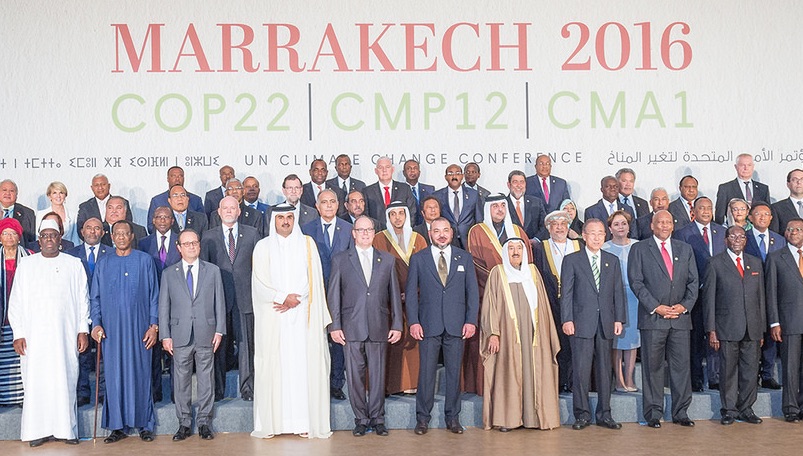What did the Paris climate agreement ever do for Africa?
It’s the question many of the continents envoys and politicians have been asking since it was signed off in the French capital last December.
In the past 11 months many African governments have struggled to build on the low carbon plans they presented as part of that deal.
And as Climate Home has reported, envoys have been warning that they would miss their targets, because they still needed money and infrastructure to adapt to hotter temperatures.
As the climate changes faster than expected and the plea of developing nations gets harder to ignore, parties of the UN might be finally taking a decisive step in the right direction.
Morocco, Australia, the US, the EU and more than 30 other countries and development banks have joined forces to deliver not only money, but also the knowledge needed to apply for more.
The partnership was launched on Tuesday in Marrakech with technical assistance from the World Resources Institute, and buddies up developed and developing nations so they can learn from each other and share resources.
Report: Over dinner, top economies plan Trump climate response
“While African countries are making efforts to also address mitigation, the reality is that adaptation is the highest priority in the region and the real challenge is how to access funds” says Yamil Bonduki, a climate plan specialist at the United Nations Development Programme (UNDP).
He said that although funding is generally scarce, African countries have a further disadvantage because they are still not familiar with the practices and language needed to successfully apply for grants and loans.
“We need to teach countries how to speak the language of the private sector, so they can attract more investments” he says.
Members from developed nations will provide finance for specific sectors such as land use, renewable energy and forest restoration, but they will also help develop better reporting, data collection and modelling, which will make their developing partner more competitive.
Trinto Mugangu, a negotiator from the partnership’s member Democratic Republic of Congo, praised the initiative stressing that his country will need technical assistance in the field of renewable energy, food security and forest conservation.
But he also said that “the partnership should [help countries] increase access to finances”. The DRC has not – as yet – ratified the Paris climate deal.
Africans will have nothing to celebrate from the so-called "Africa COP", observers tell @LouDelBello: https://t.co/KAbpyJgXAA #COP22 pic.twitter.com/6az2RrYrHu
— Climate Home News (@ClimateHome) November 14, 2016
Thomas Heller, executive director of the think tank Climate Policy Initiative said that compared to the Kyoto Protocol (the last major climate framework agreed at the UN) the Paris Agreement has gained a broader consensus because countries now understand that climate action can be good for business.
And although the majority of private investments cover mitigation, he said, there is a business case for adaptation too, which is good news for African nations.
“In agriculture and water, which are by far the fields in greater need of adaptation, inefficiencies in the way people manage resources can be corrected, increasing yields and generating profit” he said.
The need for better adaptation to feed farmers is just one example of the struggle faced by developing countries torn between poverty and the impacts of climate change. The partnership is meant to address this dilemma by accelerating economic growth while promoting clean technologies.
“The reality is that developing countries will not reach their development goals if climate change is not addressed. We can and must work to accelerate climate and development action in tandem” said H.E. Vo Tuan Nhan, Deputy Minister of Natural Resources and Environment of Vietnam.
The platform’s creators said that it will facilitate the combination of development and climate action by connecting partners and development banks from all over the world, helping countries work faster and more coherently.
But during this year’s COP African countries have made it very clear that when it comes to choosing between climate goals and meeting people’s basic needs, the latter take priority. Countries such as Ghana, Kenya and South Africa are still investing heavily on coal as part of their plans to tackle energy poverty.
And development banks embrace the same view, advocating for a more gradual transition to a zero carbon economy for countries who still struggle with poverty.
Lou Del Bello’s reporting on Africa’s climate crisis is supported by CDKN
